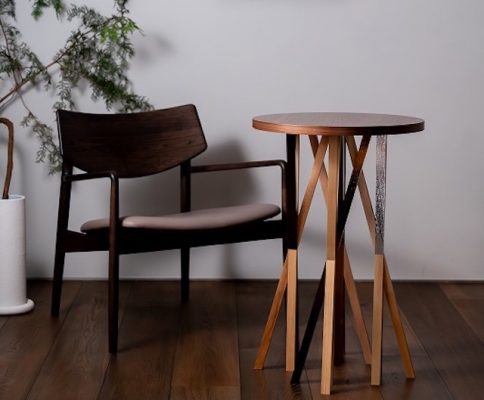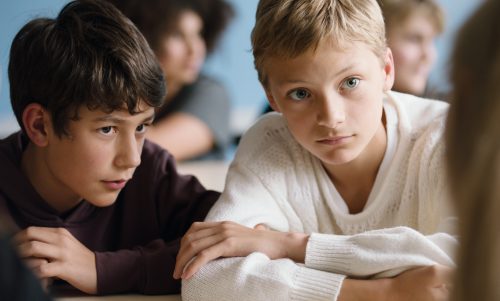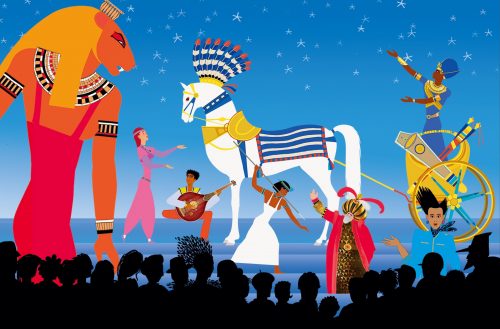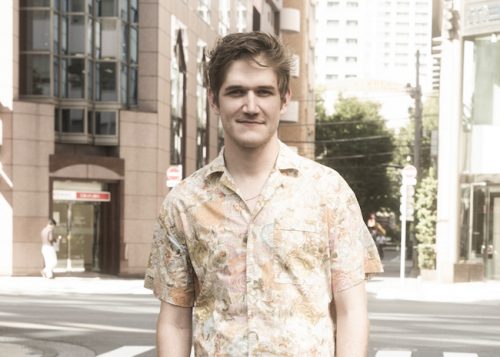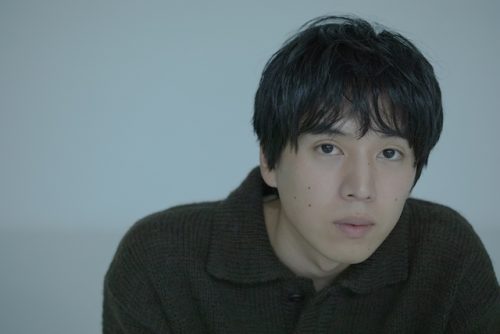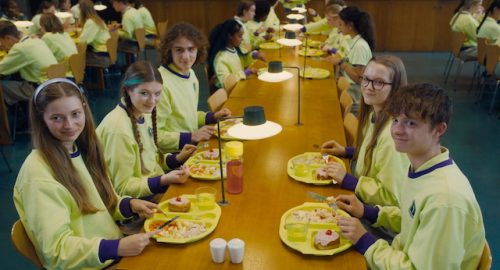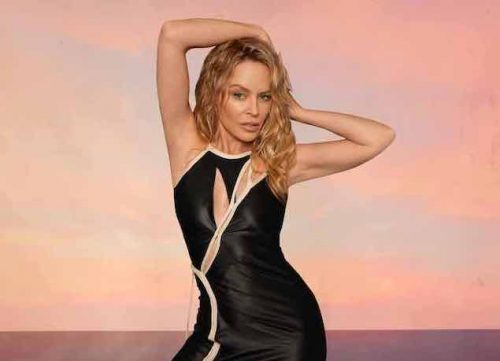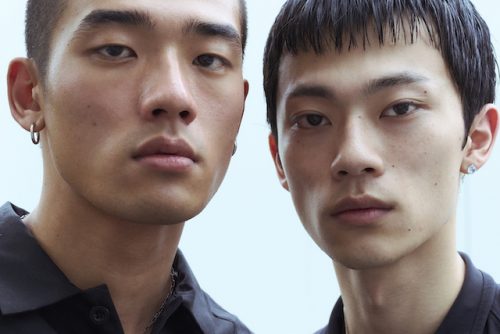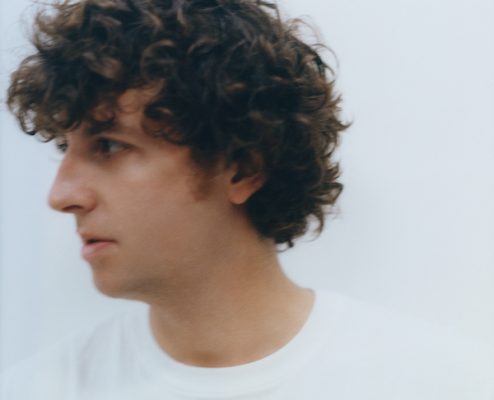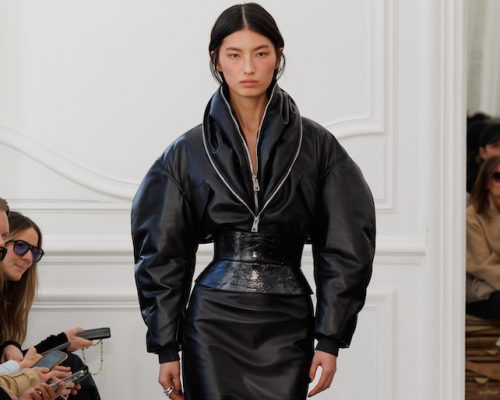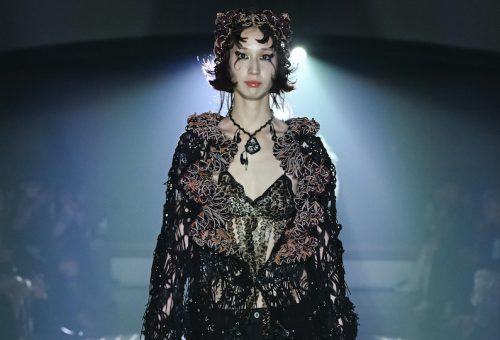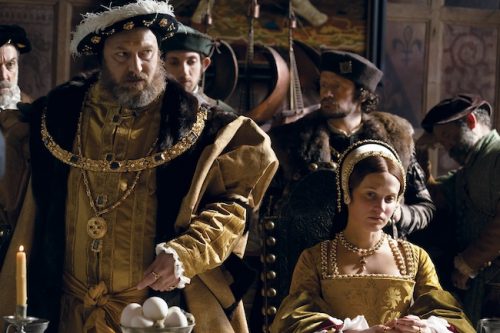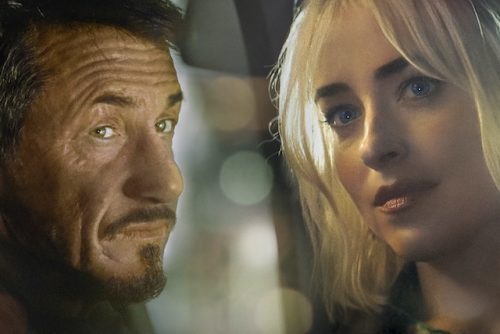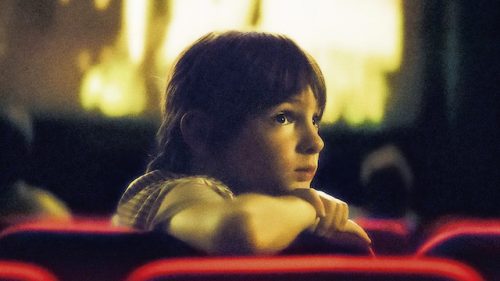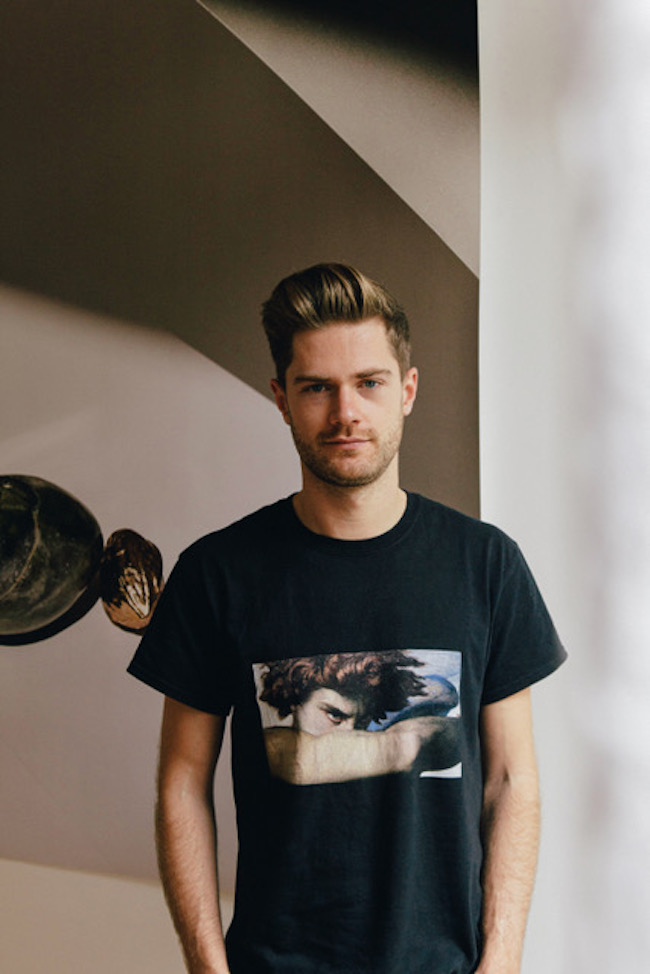
――Thank you so much for sharing your beautiful movie with us in Japan. This film is very personal yet it’s universal as well. I think no matter where you are from, many people can relate to the emotions of the film if you’ve been 13.
Lukas Dhont: Thank you. It really fills my heart that you said that.
――Your first film “Girl” was about femininity, and this time you touched on the themes of masculinity and intimacy which hadn’t been talked about in many movies. Why did you decide to tell this story?
Lukas Dhont: It’s really interesting but usually, masculinity and intimacy don’t seem to go hand in hand. I think we often confuse masculinity with virility. And at least nowadays, we have gotten very accustomed to this idea of men as an armor. A lone ranger that doesn’t need to be held or doesn’t long for intimacy the same way as a woman. But I think it’s a false narrative, because when you listen to 13-year-old boys speak about each other, you’re reminded just how important their friends are to them and how they would go crazy without each other, and how physical their relationships actually are.
So it was both confrontation with the sort of canon that we often get represented in a patriarchy and the desire to show that tenderness, and at the same time to show what the loss or the deconstruction of it means to us in a wider perspective. I wanted to see these two young boys share a bed together, and that being the most natural thing to them, until the outside look seeps into one of the boys’ way of looking. And all of a sudden, something that felt so natural becomes awkward.
――Through the lens of the society.
Lukas Dhont: Yeah, through the lens of the society. I think we are very conditioned to look at intimacy quite easily as something sexualized.
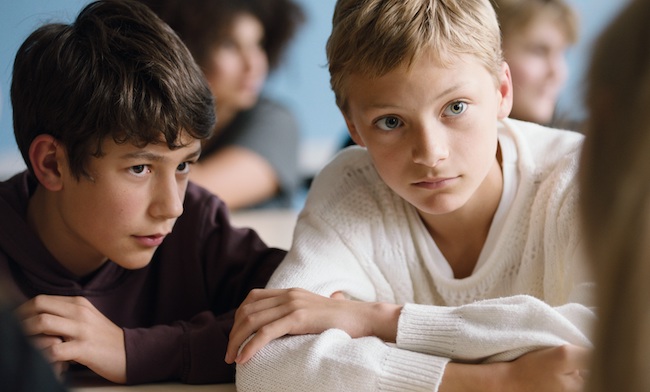
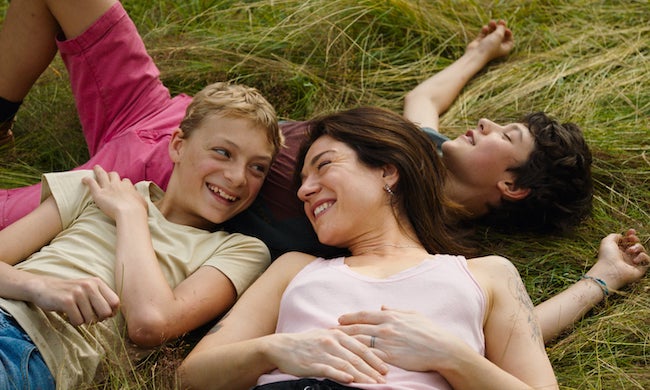
――This film reminded me of the emotion that I forgot that I had. I remember when you reach around that age, all of a sudden, kids’ perspectives start changing and they start to put unnecessary labels on relationships between close friends.
Lukas Dhont: Exactly. And it only takes that much to really shape the connection that once was to reshape it in a way that at least one of the two or maybe both become aware of how you are perceived. I’ve been often asked if these characters are gay. And I always say, I don’t know. I don’t know and I don’t care, because I think it’s more about this love between them that doesn’t have to have a name. It’s just something very organic to feel that connection to someone and not having necessarily a label for it.
――I read that you were asked whether this is a queer film or not at the event in Tokyo. What does a queer film mean for you?
Lukas Dhont: My interpretation of a queer film is about norms and expectations and gender and roles put upon the body. In the same way that for example, for me, “Jeanne Dielman” by Chantal Akerman is a queer film. That again, I always say it’s “also” a queer film. Next to that, it’s not at all, it’s also a human film. What is interesting, especially from a community that has rejected labels, or definitely wants to reject labels, is that somehow in this world, things always come back to that idea of a label. The idea of “Is this a queer film or not?” is like, we feel more comfortable categorizing something. And it’s really interesting because breaking free from all that seems to be very hard to all of us. Also, someone who’s queer and who’s watching this film will have a different take and interpretation, and will read it in a different way than someone who’s not. And that’s totally fine. I think it’s not about what the actual name is. It’s more about the human condition of it.
――How did people in different countries react to this film?
Lukas Dhont: I think it really depends on which country. But overall, what has been really interesting is that the film has sparked a lot of personal connection, and a lot of people project their own childhood wounds on here. It has made them reconcile and relive certain things from the past in a way that I think is really deeply interesting.
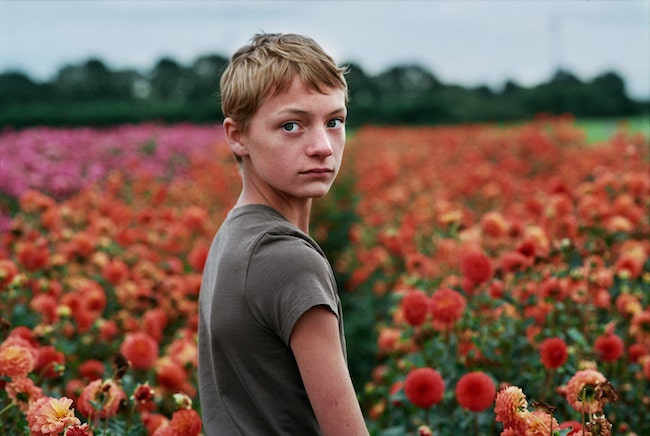
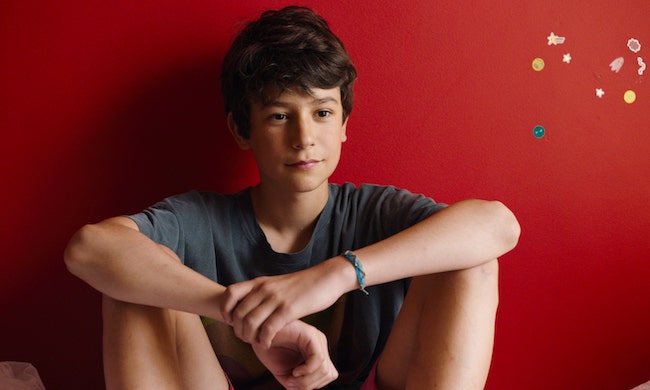
――Eden Dambrine and Gustav de Waele who played Leo and Rémi were so special. I can’t believe this was their first time acting. I read that you found Eden on the train. What did you see in him that you wanted to talk to him?
Lukas Dhont: Going through life and going through the world, we often pass people for a reason. I think in the past that has happened to me, I didn’t act on it. And when I saw Leo sitting on the train, I again had that feeling of meeting someone for a reason. But I felt for the first time that I wanted to act on it, that I didn’t want to let this person pass by, and really wanted to speak to him.
――I’m glad you did.
Lukas Dhont: Yeah, and of course, I was writing “Close” at that moment, so I had this fictional young boy in mind. What I loved about Eden was his way of moving. It was very elegant, very fluid, very soft. And it’s a film about the control over behavior, so I knew that this character at one point in the film really starts to want to move through the world more toughly, more shaped and harder. I knew that that didn’t come organic to him because he’s very soft and sweet, and I knew that him directing his movement like that would feel a little bit like a performance. So I liked that because that was very essential. And his eyes are incredibly strong and speaking, and when he was talking to his friends, I just saw that he had this very expressive way of telling a story. So there was something in his eyes that I was very drawn to and that made me decide to speak to him.
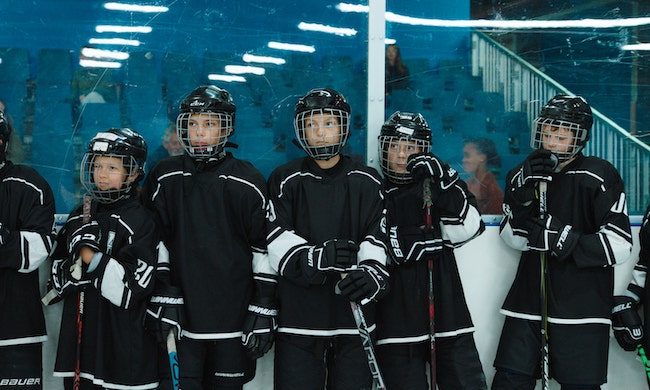
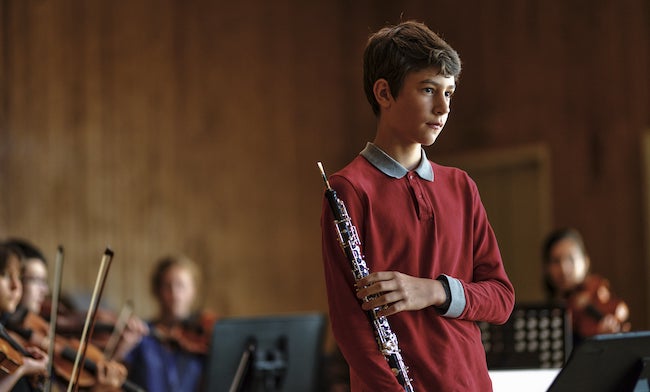
――How did you shape these characters with them?
Lukas Dhont: They read the script only once at the very beginning, because I didn’t want to have any secrets from them. I wanted to have a very horizontal collaboration with them. We talked about a lot of things in the film, and they talked in a very open way about how it connected to them or not. Then I asked them not to read the script again, because what I wanted to avoid was that they would think they have to copy something which is on paper, and that there wouldn’t be space for their creativity to be a part of the process, which I absolutely desired.
So over the course of six months when we were spending time together, I would ask them a lot of questions about the document they once read, and I would never give them answers. Because I felt like asking them questions and allowing their answers to be the ones that they felt alright with was more interesting for me than serving them an answer to a question.
――Did they give you any insights as they are around the same age as Leo and Rémi?
Lukas Dhont: I remember the scene in the very beginning of the film where Leo tells a bedtime story to Rémi as they were lying in the bed. We had written this story about this boy falling into a black hole in space because we thought it was metaphorical and beautiful. But during our first conversation after they read the script, Eden said, “You know, I would never say anything like that.” It was great because I could ask him, “OK, so what would you say? What would be your bedtime story?” And a little bit later, he came to us, and he said, “I will tell the story about a duck and a lizard.” When we were listening to the story, we thought it was really great, because it was very much in the language of a 13-year-old. He had implemented all these things that he had sensed were in the film through his own words, and I loved that idea. So they really gave us a lot of input, and we made sure that the dialogue was not the one written by an adult for a kid, but it could also stem from their own creativity.
――I really loved the scene with Leo and Rémi’s mom because their relationship seemed genuine. Émilie Dequenne is great as Rémi’s mom.
Lukas Dhont: We spent a lot of time together before they started to get very close to each other. Émilie Dequenne is an actress who played her first role at the age of 15. She starred in “Rosetta” (1999) for which she won the prize at Cannes. So she very much knows what it’s like to be young and acting. And she also really accompanied these two young human beings for whom it was the very first encounter with acting in that journey of what it would look like. I’m very thankful to her for being so present in the process as she was, because she really delivered a lot to these roles.
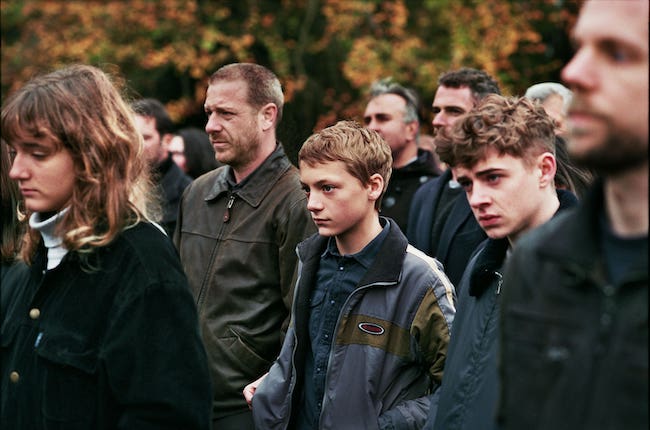
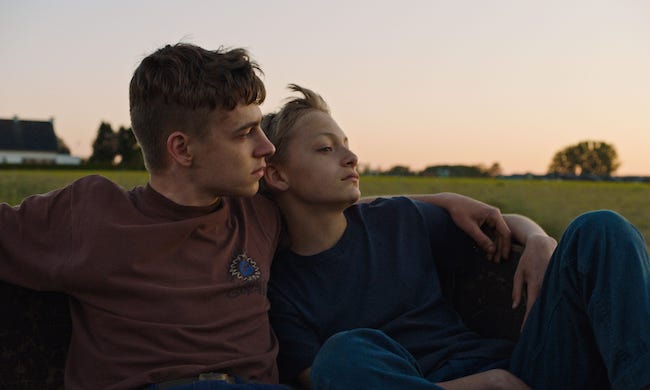
――It is very sweet and almost dreamy with the two boys running around in the flower fields in the beginning of the film. Why did you choose that location?
Lukas Dhont: I grew up very close to a flower farm, so that location reminds me of my young years. When I knew that this was going to be a film about a young friendship, I knew that that location represented something for me. One of the very first sequences for the film that came to exist was the opening sequence where it’s pitch black and we find these boys in a bunker, in a space that has always been represented or linked to virility, linked to men, and linked to war, and have these boys make up that vocabulary to then see them run out in this field of flowers. It’s a sort of juxtaposition of the brutal and the fragile which you see throughout the film. I think this is a film that really moves between something incredibly tender and something incredibly brutal. And then in the bigger scope, the flower field became this representation of the fragility of life. I think in the shift in tonality, when these machines arrive and cut these flowers from the fields, you feel like something is in the air and something is shifting and changing.
I also knew that the passing of time would be very important in this film. I think these fields gave us this organic way to show that passing of time. Of course, this is a location that defines their friendship. I think Leo is very much looking for a presence without an actual presence. So this question of “Can someone stay close to us even if they are no longer there?” was something I really was looking for. And I think these flower fields had the answer in them.
――Lastly, is there anything you would like to say to the Japanese movie fans who are looking forward to watching this film?
Lukas Dhont: I’m so happy to be back in Japan with this film. I think what is extraordinary is that this film is literally made at the other end of the world. So it would be such an honor that people here would go see it in the cinema and connect to it. I feel very honored that it’s being released here, and I hope it may mean something to someone.
text nao machida





